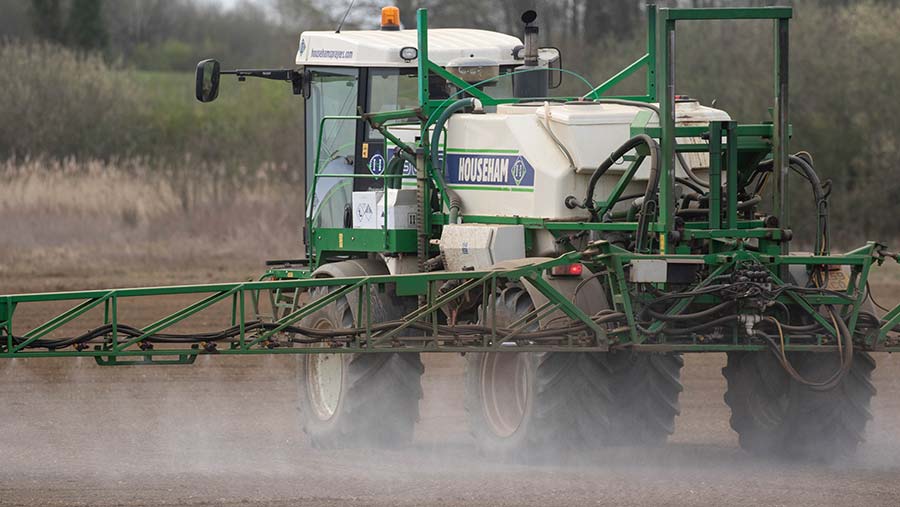Report calls for biotech support to address food security
 © Tim Scrivener
© Tim Scrivener The government should look to agri-technology, including gene editing and genetic modification, to help tackle growing food security issues, a report has claimed.
The report was released by the Agricultural Biotechnology Council (ABC) – an umbrella group comprising four chemical companies: Bayer, BASF, Corteva and Syngenta.
See also: Gene-editing breakthrough could cut ruminant methane
It promotes various crop technologies across the food supply chain and the research community.
Titled “What are the economic and environmental benefits of embracing agricultural innovations, and how do we get there?”, the report urges government to consider four recommendations:
- Set out a clear, near-term path to the commercialisation of technologies such as gene-editing
- Move away from the European Food Safety Authority (EFSA) to enable greater agility and responsiveness in policy decisions based on science
- Reassure consumers about the safety of new technologies and the sustainable intensification of agriculture
- Continue investment in research and development in agricultural innovations.
It says its proposed approach is needed as food production will have to rise by 70% to feed a global population expected to hit 10 billion by 2050.
Brexit opportunity
This must be achieved against a backdrop of disruption caused by climate change, global demand, the Covid-19 pandemic, inflation and conflict.
The report also hails Brexit as “an opportunity to re-join the mainstream of global agricultural innovation”. And it praises the government’s decision earlier this year to free up research into gene editing as an historic step.
But ABC chairman Mark Buckingham stressed the need for more support as UK farmers had to produce high-quality, affordable food sustainably while competing with imports.
This meant responding to the consequences of climate change such as drought, extreme heat, flooding and biological threats from pests, Mr Buckingham said.
There was a need to build greater resilience by providing crops with better nutritional value that required less land and reduced agricultural emissions, he suggested.
Sainsbury Laboratory professor Jonathan Jones added further urgency to the call for political backing.
“We know enough to identify plant immune receptors that prevent important crop diseases and stack them via genetic modification,” he said.
“[This] renders them essentially immune while reducing the need for agrichemicals.
“Frustratingly, six years since the Brexit vote, dysfunctional regulation still prevents such solutions being brought to public use.”
